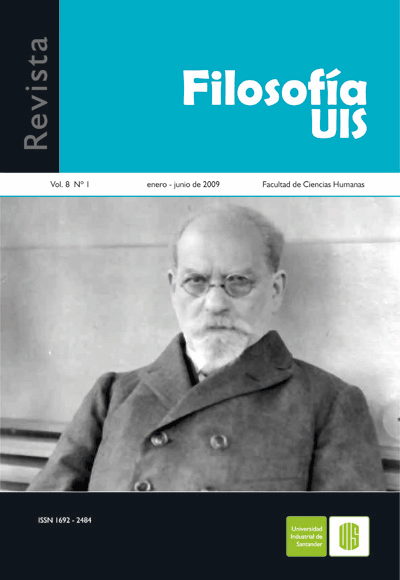Without lack, without deprivation, without fault. Deleuzian indications for a critique of the concept of necessity
Published 2009-07-07
Keywords
- necessity,
- desire,
- lack,
- privation,
- fault
How to Cite
Copyright (c) 2009 Fernando Martín Gallego

This work is licensed under a Creative Commons Attribution 4.0 International License.
Abstract
The concept of necessity can be considered as one of the central points in the debate around conceptions of the human. Under this condition, and taking into account the fact that the usual meaning of the notion of "human necessity" derives from the understanding of desire in terms of lack, the proposal of the present article is to critically review the notion of "necessity" starting from the non-lacking conception of desire developed by Deleuze and Guattari in Anti-Oedipus: Capitalism and Schizophrenia and, correlatively, advance in the formulation of a conception of it lacking lack, deprived of deprivation and missing the fault.
Downloads
References
Deleuze, G. y Guattari, F.: Mil Mesetas. Capitalismo y esquizofrenia II. Valencia: Pre-textos, 2002.
Deleuze, G. y Guattari, F.: “El hombre: Una existencia dudosa”, en La isla desierta y otros textos. Textos y entrevistas (1953-1974). Valencia: Pre-Textos, 2005, págs. 121-125.
Deleuze, G. y Guattari, F.: “La vida como obra de arte” en Conversaciones. Valencia: Pre-Textos, 1996a, págs. 153-164.
Deleuze, G. y Guattari, F.: Empirismo y subjetividad. Barcelona: Gedisa, 1996b.
Deleuze, G. y Guattari, F.: Foucault. Barcelona: Paidós, 1987.
Deleuze, G. y Guattari, F.: Nietzsche y la filosofía. Barcelona: Anagrama, 1998.
Krmpotic, Cl.: El concepto de necesidad y políticas de bienestar. Una lectura comparada de Heller, Sen y el G.P.I.D. Buenos Aires: Espacio Editorial, 1999.
